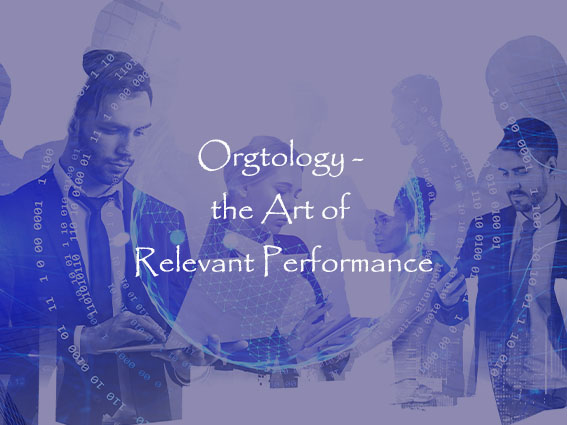In life, we measure much of any person's worth by what they achieve, after they have achieved it. In some sense, targets, outputs, and outcomes all do this. Why then should we know their difference? What makes matters worse, is that there are many definitions on each.
To manage operations and strategy, Org must measure its results. There are two ways to do this. The first is to define what a process must deliver. This is a prediction of an output. In orgamatics we call it an output target. An output is the result of an operation. An operation is when cyclic processes repeat a known past to create a predictable result. The second is to define the change that a strategy must induce. This is the prediction of an outcome. In orgamatics we call it an outcome target. An outcome is the effect of a strategy. A strategy is a plan to achieve an intent through project-based work.
A target predicts an output or outcome. The actual results are outputs and outcomes. The variation between predicted results and actual results is a measure of performance. The way in which we grasp what we get, will differ to the way in which we grasp the impact of that. Therefore, the metrics of outputs and outcomes cannot be the same. One must know the difference between these concepts since they respectively drive performance and relevance.
To grasp these concepts, we must define them from an orgamatics perspective. Once we understand what they are, we can relate their interdependence.
Basic assumption on performance metrics.
If the only two things that Org must do is to perform and to stay relevant, then respectively measuring performance and relevance will give the sum of organisational results.
The purpose of Org is to perform, whilst its intent is to stay relevant. We cannot have one metric to measure both, since they run on different rules. In so, we must measure them separately because one gives feedback on a repetitive past whilst the other expresses a desire within an unknown future. The past is concrete and exact. The future is abstract and vague.
We measure the past through outputs, and the future through outcomes. Processes drive outputs whilst we negotiate outcomes through projects. Both show results, but from different perspectives. Targets are predictions of what we believe the outputs and outcomes should be.
What is an output?
Outputs are the results that a process cycle delivers. When one forecasts that, it becomes a target. One can predict an output with reasonable accuracy since it repeats a known past. There is a lot to learn from the past. Perfect knowledge on a process should give perfect knowledge on its outputs. If there is no unknown factor that will disrupt a process cycle, its output should be predictable.
An output shows ability and not completion. Processes do not begin or end, they cycle. Therefore, an output tells you what the ability of a process is at a specific point in time.
The ability of a process reflects its efficiency. E.g., When a lioness teaches her cubs to hunt, she will take them to mice and grasshoppers, until they can do so with ease. As they become more able, she will take them to larger animals, such as small antelope. Later, she might teach them to take down a zebra, and who knows, eventually a buffalo. The lesson here, is that there is no difference in the core process of hunting a lizard and that of hunting a buffalo. It is the lion's ability that has increased with the latter hunt. A process that produced a lizard now produces a buffalo, without adding resources. This is the essence of efficiency.
What is an outcome?
An outcome shows the effect of what we have done. E.g., the functionality of an IT company that sells infrastructure, is what customers buy. Functionality of infrastructure is the output. Whether people use it, and whether the IT company makes money from it, is an outcome.
Efficiency drives outputs whilst effectiveness creates outcomes. Outputs show whether we are doing things in the right way. Outcomes show whether we are doing the right things.
Outputs are easy to predict, whilst it is extremely difficult to predict outcomes. This is because an outcome is often just a perception of those who use your product or service. It is difficult to predict how people will perceive things.
What is a target?
A target is a quantifiable estimate of an output or outcome. In orgamatics we distinct outputs from outcomes since they measure different things. They have unique implications; thus, we must assess them correctly.
When we create an output target, we forecast what a process must do. This is measurable since repetitive processes produce predictable results. An output target will help us grasp the level at which we can perform. Therefore, outputs become operational targets. Output targets thus measure efficiency.
Dispose of 80% of our fully depreciated fixed assets by 30 March 2020.
Output Target
An outcome target is different. Here we aim to forecast the impact that something will have. This is difficult, since we cannot predict what the effect of a product or service is on those who use it. People are simply not that predictable. An outcome target must help us to grasp how relevant our performance must be. In precis, outcome targets measure effectiveness. The test of effectiveness is relevance.
Increase our market share by 50% before the end of this strategic period.
Outcome Target
The primary difference is that Org has full control of an output target. In other words, we can achieve it through process efficiency. Also, an output is something that we infinitely repeat. It never gets executed. An outcome target is only partly under the control of Org. To achieve such target, one must strategize and often compromise. Outputs needs communication whilst outcomes need negotiation.
Practical application.
To know the difference between outputs and outcomes is important. It will ensure efficiency and secure effectiveness. There are separate metrics for outputs and outcomes. Outputs create a fact, whilst outcomes negotiate a perception. Clear outputs and outcomes will enable Org to define exact targets.
Outputs begin in purpose, whilst intent drives outcomes. The former defines performance whilst the latter ensures relevance. Org will measure its performance against output targets.
Once Org creates its outputs, it can test the efficiency and relevance thereof. If there is a problem with either, Org must transform or mitigate risk. In so, strategy and the ability to mitigate risk will decide the relevance of Org. From this we learn that outputs precede outcomes. Therefore, efficiency precedes effectiveness. Through this cycle, effective outcomes will ensure efficient outputs.
The interaction between outputs and outcomes.
The flow chart below gives a simple view of how outputs and outcomes interact.
A process construct creates the outputs of Org. If these outputs are both efficient and relevant, Org will continue to produce them. If not, Org must decide whether it can change the situation. If "Yes", then Org must transform. If "No", then Org must mitigate its risk. These initiatives will drive relevance. In orgamatics this is an outcome. Where outcomes are effective, we use it to boost our outputs. If they are not, we go back to the drawing board.
Conclusion
An output target predicts future performance through analysing past efficiency. An outcome predicts future relevance. Jointly, they help Org to perform and stay relevant. To distinct them is key. To accurately predict them will give immense competitive advantage.



